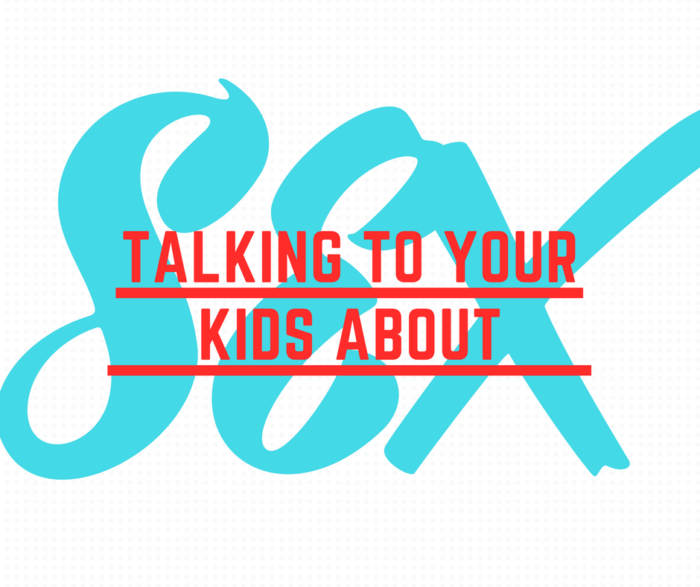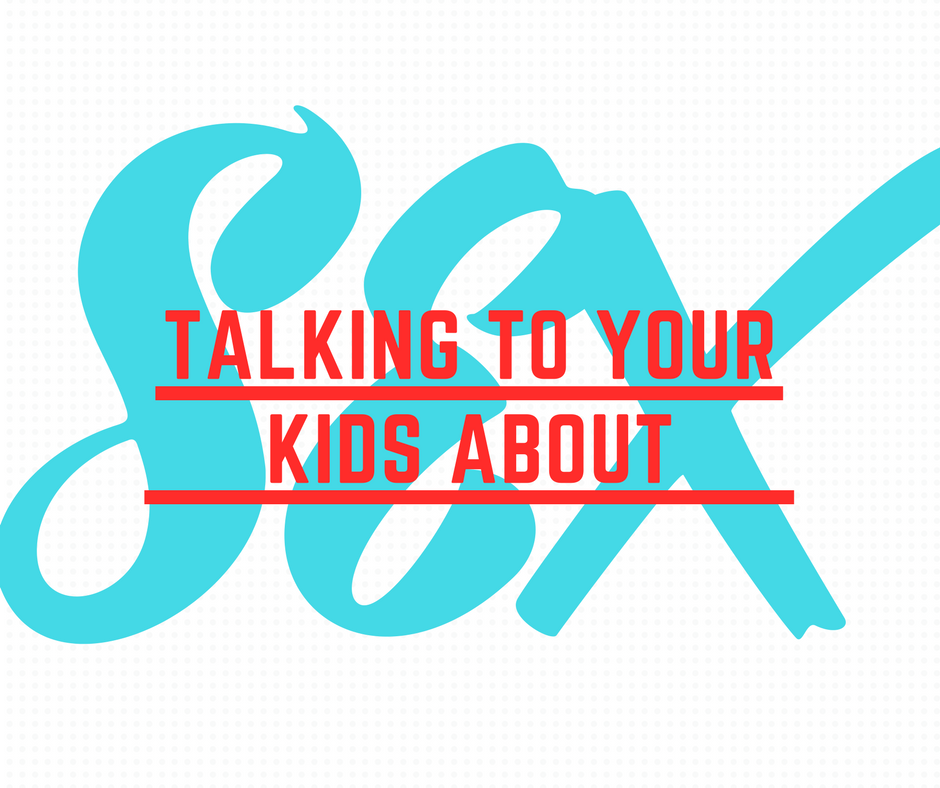
I don’t know about you, but I don’t remember having THE talk with my parents. Perhaps I just blocked it out, but to prepare myself for THE talk with my kids, one of the best things I did was host a group of fellow moms one morning after drop-off to hear Cindy Austin, MS, LPC Psychotherapist speak to our group about how to talk to our kids about sex.
She recommends talking about it EARLY (around age 8). She enlightened us with the fact that our kids know as much about sex as their friend’s oldest sibling (as this is what they are most likely exposed to). I know all of us want our kids to hear the truth from us, not anyone else. So to start, she recommended two books, How To Talk To Your Child About Sex by Richard and Linda Eyre and It’s Perfectly Normal: Changing Bodies, Growing Up, Sex, and Sexual Health by Robie H. Harris and Michael Emberley. The latter is in a comic book format that makes for an easy visual to focus on while talking to your child.
There are also words to assist in starting and revisiting the conversation. One of the most kid-relatable explanations was describing intercourse like two puzzle pieces fitting together.
Here is a guide by age on talking to your kids about sex:
- From 0-3 years, it’s important to use the correct names of all body parts and answering questions.
- From ages 3-8, discus how loyalty, love and commitment are shown in your family (she used the examples of cheering at a sibling’s game, how mom was at your school event, etc.); how your child dresses and what it says about him/her; respecting and protecting our bodies; THE talk.
- Ages 8-13, continue discussing the topics around sex; the importance of decision making (and permanence); puberty; preemptive talks about birth control, fertility, abortion, rape, abuse, prostitution, masturbation, wet dreams, hard-ons, homosexuality, AIDS, cyber safety, pornography, sexism, other forms of sexual behavior, trusting intuition (in no particular order). For my 13-year old son, I really think about what I can do to ensure he’s a kind and gentle person to all females. How am I modeling this? What is he seeing inside/outside the home? What is he seeing on social media? What are his friends saying? This provides many conversation starters. For my 10-year old daughter, my hope is that she defines her sense of self, rather than it being defined for her or by her need to please (also known as the Ophelia Syndrome. There’s a good book called Reviving Ophelia: Saving the Selves of Adolescent Girls by Mary Pipher and Ruth Ross that Cindy recommends). I pray both of my kids have healthy relationships, make good decisions, are gentle with themselves and love themselves deeply.
- For ages 11-16, it’s recommended to shift from teaching about sex to how to view sex. According to Cindy, it’s more about attitude and behavior rather than knowledge. In addition, it’s important to talk about the physical and emotional aspects of sex.
- For ages 15-19, she encourages discussions on perspective and personal standards, and we, as parents, become consultants to our children rather than their managers.
This might seem really overwhelming, but this is a frequently revisited conversation, not a one-time occurrence. My son and I had discussions using the comic book mentioned above, and we had (and will continue to have) a lot of talks in the car (less awkward for him when we are focusing on the road). It’s always amazing to me how much he’s learned about sex at school, through both his friends and classroom discussions. We’ve covered a lot of slang words and I always try to keep an open, non-judgmental approach to help him feel as comfortable talking to me as possible. It’s safe to assume our kids have many questions, as they are exposed to a lot. Putting ourselves in our kids’ shoes as much as possible helps.
My daughter and I had a brief talk earlier this week. I made it very straight forward and factual. She’s 10 (4th grade) and said “gross” after I talked about the puzzle pieces. I’ve read and heard about too many instances where girls see a little bit of blood in their underwear and become terrified. So we talked about what to expect when she gets her period. Some girls in her school have started putting a pad in their locker to give them some piece of mind. Our school also has an amazing nurse that Julia can always visit.
Using this information, and weaving in your personal beliefs and style is a great start to talking about what many consider extremely uncomfortable. This conversation could easily move into religion, but for us, we kept very factual-based. I did include our personal and family values and my expectations for my kids.
We can talk about hard things, and we can even make them not so unpleasant. We want to hold onto our children’s innocence (and youth) so badly. However, our job as parents is to ensure our kids are the best well-adjusted people. A recent article I read about letting your children grow reassured me greatly, “the one I was supposed to train up in the way she should go; “go” is the operative word here.” They are, and always will be, inside of us.










